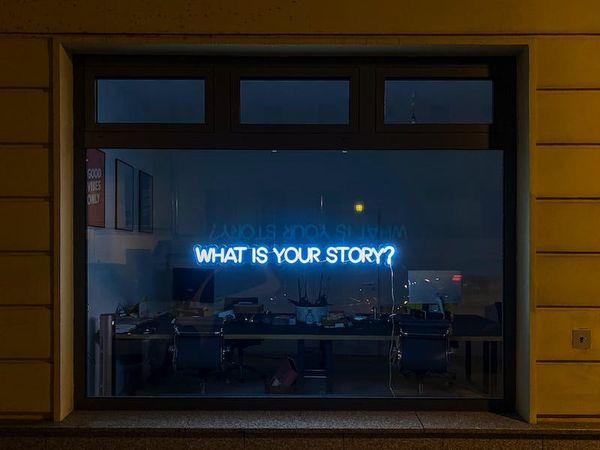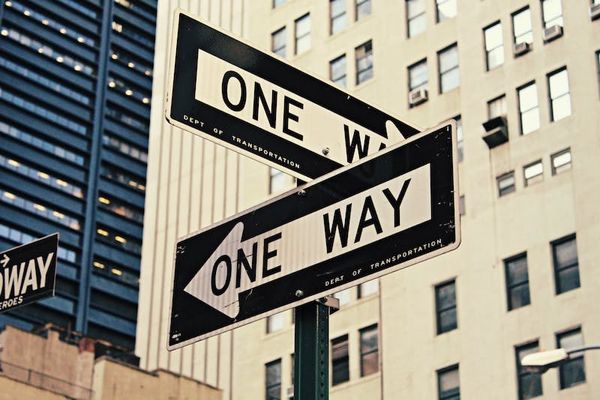How to give up on your dreams
Stolen dreams and the assumptions underneath

This month, I finally gave up on my dreams.
For the past few years, I've struggled to choose what to work on and stick with it. There's a constant push and pull between different product ideas, content creation, and choosing to provide services like SEO and web development.
But back in December, I finally made the decision: I would go all in on freelancing and starting a one person agency.
The main deciding factor was that I wanted more options, more control, more money, and more freedom in my life. There were some frustrating days at my full time job, and I wanted to have more control over the work that I was doing. And of course, who doesn't want more money?
I thought the quickest way to these goals was to go freelance. I saw the numbers that I could pull in, and started to dream about how I could delegate most of the work through processes.
But there was a problem.
Where are your dreams coming from?
My dreams were stolen.
I believed that I wanted to freelance, to own my own agency, but these were just mimetic desires. I saw people with fancy lifestyles -- those who made truckloads of money, as well as those who had a small company of one and didn't work much.
I didn't realize it at the time, but most of these people had something to sell me. It's fine for freelancers and agency owners to sell courses, but I needed to understand that these people are incentivized to show off the best lifestyle possible, and that I needed to come into it with a grain of salt (or four).
The more desire they build, the more money they make.
This whole stolen dream thing became especially apparent to me when I was watching an interview with someone who had started to outsource the work they were doing. They had started as a one person agency, but in order to start to remove themselves from their business, they had to do interviews with nearly a hundred people to find the right fit.
That sounded awful.
So what did I want? What did I actually want this money and freedom for?
The answer that seems clearest now is to work less and live more. I wanted to be able to have more resources to pursue the ideas that energize me.
And how was this business plan going to get me to that goal?
I had made many assumptions.
Why freedom? - The Assumptions
Assumption #1: More money = Less work
This is probably one of the biggest assumptions that I made that isn't true.
When people give you money, you have a responsibility to provide an equal or greater amount of value through solving one of their problems.
One of the concepts that I'm starting to learn more about on the journey to work less and live more is the need for leverage. When you sell a product, you leverage your previous time and effort into being able to sell a product nearly limitlessly.
Of course you still have to make sure your customers are happy, and make sure your customer experience is good enough, but it's far less effort than signing up to provide a service each month.
I had this dream that I could create some service offerings, then flip a switch and "productize" it. But as we learned from the interview with the one person agency owner who had probably 50 hours of interviews to find people to outsource to, it's not that simple.
Assumption #2: I wanted a successful agency
Did I actually want to have a successful agency? What would that look like?
The worst of it would look like: cold calls, cold emails, sales calls, pitch decks, rejected proposals, client meetings, scope creep, angry clients, and the list goes on.
Was that something I was willing to deal with?
Corey Wilkes talks about this in his newsletter on The Hidden Cost of Success:
Do I want the successful version of this?
I started using this question after realizing I didn’t want to “succeed” as a psychologist.
It took me 12+ years to become a psychologist. But “success” as a psychologist means eventually becoming the director of behavioral health for some big medical clinic. It would’ve meant drowning in administrative bullshit, endless staff meetings, eventually becoming president of my state psychological association and leading mind-numbingly boring presentations so other psychologists could check off a box to get enough continuing education credits to maintain their license, and hitting an income ceiling by age 40—regardless of how great I was at my job.
What will success actually look like in the thing you're pursuing? Is that what you really want?
Assumption #3: A successful agency would provide me with more freedom
Piggy-backing off the last point, will building a successful agency actually provide me with the freedom and control that I wanted?
Most likely not.
A common saying when it comes to switching from full-time work to freelance work is that you're trading in one boss for multiple bosses. Each of your clients is a boss and has separate demands, needs, and expectations.
Can you curate a great client portfolio? Absolutely. Am I willing to put in the work to get there? Probably not.
Instead, I'd be tied down to more responsibilities and needs from multiple individuals (see point 1).
Assumption #4: More optionality = More happiness
I'll keep this one short and punchy:
Pursuing optionality is an excuse for not knowing what you really want.
More optionality and more freedom will not change your core self.
It’s likely that if you can’t be happy right where you’re at, right now, then you probably won’t be happy anywhere. Your happiness will always be something ‘out there’, beyond the horizon, and mimetic desire will continue to exert an unhealthy control over you.
Luke Burgis
Assumption #5: I needed more resources to do work I enjoyed
Perfectionism.
There are always going to be better circumstances, a better way of implementation, and more resources you could do great things with.
In the same way the previous point was a way to procrastinate deciding what you really want out of life, this is a way to delay the things you want to build because the circumstances aren't perfect.
For instance, one of my little trial businesses was a drop shipping store selling accessories for a specific espresso machine. I just didn't have the resources at that point to provide the level of service I wanted, so I killed it for the time being.
It just wasn't the right time for that idea.
Instead, I'm now looking at the ideas I like that I can execute on fairly well with my current resources.
The path forward
I’m going to refrain from giving you a list of recommended action items on specifically how I think you should give up on your dreams, and instead share with you what I’m doing right now. Hopefully this post has implanted a little worm in your head if what you’re working on just doesn’t feel right.
Here are some things I'm doing moving forward:
Understanding liking vs wanting (stay tuned for next week's edition!)
What is it that I like doing?
Where am I putting my desires before my enjoyment?
Re-reading The 4-Hour Workweek
Toning down the amount of "business idea" content I'm consuming
Action items from this video:
Digital detox
Therapy/coaching, or more journaling
Confidence to pursue curiosities



